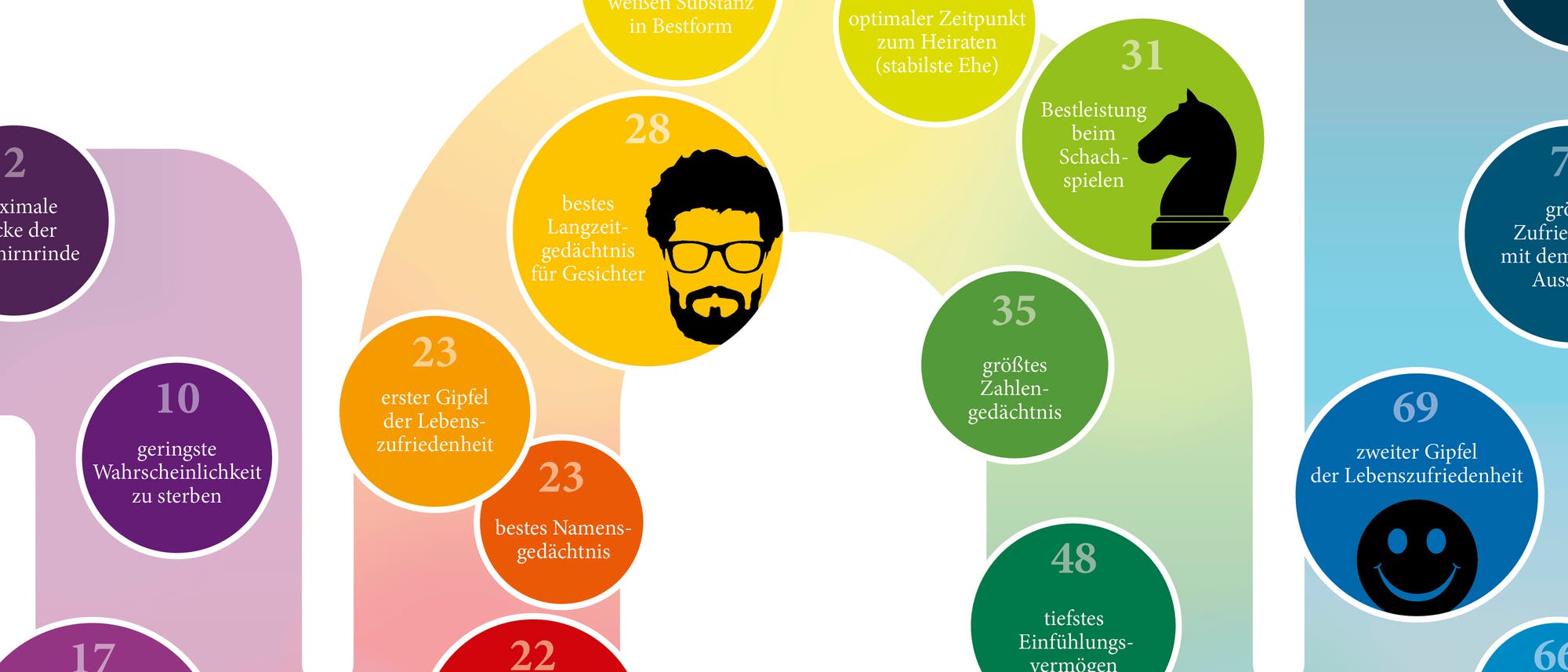Die Gehirn&Geist-Infografik: Gipfel auf dem Lebensweg


Berthelot, G. et al.: Exponential Growth Combined with Exponential Decline Explains Lifetime Performance Evolution in Individual and Human Species.In: AGE 34, 1001-1009, 2012
Gallup-Healthways Well-Being Index, 2014
Hartshorne, J. K., Germine, L. T.: When Does Cognitive Functioning Peak? The Asynchronous Rise and Fall of Different Cognitive Abilities Across the Life Span.In: Psychological Science, 10.1177/0956797614567339, 2015
Lehrer, E. L.: Age at Marriage and Marital Instability: Revisiting the Becker–Landes–Michael Hypothesis.In: Journal of Population Economics 21, S. 463 – 484, 2008
Lyall, A. E. et al.: Dynamic Development of Regional Cortical Thickness and Surface Area in Early Childhood.In: Cerebral Cortex 25, S. 2204 – 2212, 2015
Schwandt, H.: Unmet Aspirations as an Explanation for the Age U-shape in Human Wellbeing.CEP Discussion No 1229, 2013
Social Security Administration, 2016 Trustees Report
Stone, A. A. et al.: A Snapshot of the Age Distribution of Psychological Well-Being in the United States.In: Proceedings of the National Academies of Sciences 107, S. 9985-9990, 2010
Westlye L. T. et al.: Life-Span Changes of the Human Brain White Matter: Diffusion Tensor Imaging (DTI) and Volumetry.In: Cerebral Cortex 20, S. 2055-2068, 2010
Schreiben Sie uns!
Beitrag schreiben